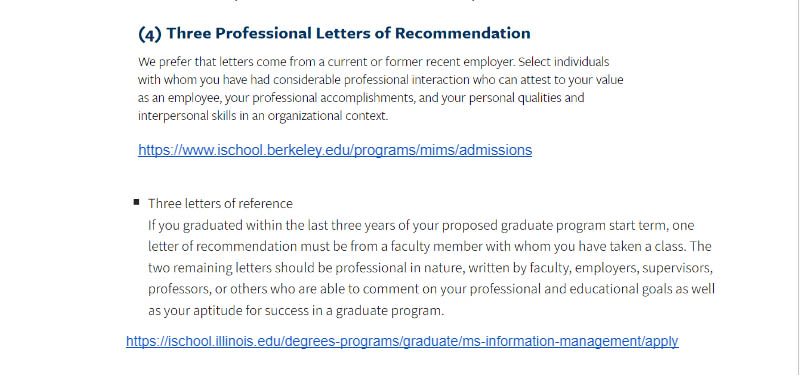
Ishita Tambat
Stanford University Student | PMI CAPM® Certified | Google Certified (Project Management) | Lean & Agile Principle Practitioner

Unlocking the Power of Recommendations: Crafting Effective Letters of Recommendation for Your Master's Application
When it comes to applying for a Master's program, the importance of strong letters of recommendation cannot be overstated. These personalized testimonials from individuals who have worked closely with you can provide valuable insights into your academic abilities, work ethic, and potential for success in higher education. In this blog post, we will delve into the process of drafting impactful letters of recommendation, ensuring that you present a well-rounded picture of yourself to admissions committees.
1. Understanding the Requirements
Before diving into the letter of recommendation (LOR) drafting process, it is essential to grasp the specific requirements set by your target universities. Clearly identify if the universities have mentioned the type and number of LOR they need for instance three academic lors. Typically, you will need three academic LORs. However, if you have limited work experience or are interning, you may opt for two academic LORs and one professional LOR. Conversely, if you possess over a two-three years of work experience, it is advisable to provide one academic LOR and two professional LORs.

LOR requirements of by different universities
2. Choosing the Right Recommenders
Selecting the right individuals to write your LORs is crucial. Ideally, your recommenders should be professors or professionals who have taught or guided you in a project. It is important to have a rapport with them and ensure their willingness to provide you with a strong recommendation. Seek individuals who can speak to your academic achievements, leadership potential, research work, extracurricular activities, and volunteer experience.
3. Crafting Unique Content
While it may be tempting to reuse the same content for multiple LORs, it is essential to create distinct letters for each recommender. Admissions committees value diverse perspectives and insights. Collaborate with your recommenders to discuss the aspects they should focus on, ensuring that their letters complement each other while showcasing different facets of your abilities and character.
4. Covering Comprehensive Aspects
To create a comprehensive portrayal of your qualifications, it is important that the LORs cover various aspects of your profile. These can include your academic performance, projects, research work, leadership roles, involvement in extracurricular activities, notable achievements, and volunteer work. Strive to provide a well-rounded representation of your strengths and accomplishments, reinforcing your suitability for the Master's program.
5. Adhering to Word Limits
Most universities provide specific guidelines regarding the length of LORs, often limiting them to a single page. It is crucial to respect these word limits and craft concise, impactful narratives. Make every word count by focusing on the most significant aspects of your profile. A well-structured and succinct LOR will capture the attention of admissions committees and convey your recommender's endorsement effectively.
6. Seeking Approval and Submission
Once you have drafted the content, it is important to seek your recommenders; approval. Share the content with them in advance, allowing sufficient time for revisions and adjustments. Clearly communicate the process by which they will receive the submission link and any specific instructions provided by the university. Finally, submit the LORs to your target universities well before the application deadlines to ensure a seamless and timely submission.
Master's program applications require meticulous attention to detail, and letters of recommendation play a pivotal role in showcasing your qualifications and potential. By carefully selecting recommenders who know you well and can provide unique insights, crafting tailored content that covers various aspects of your profile, and adhering to university guidelines, you can maximize the impact of your LORs. Remember, these recommendations are a testament to your abilities and character, so invest time and effort to ensure they reflect your true potential. Best of luck with your Master's application journey!